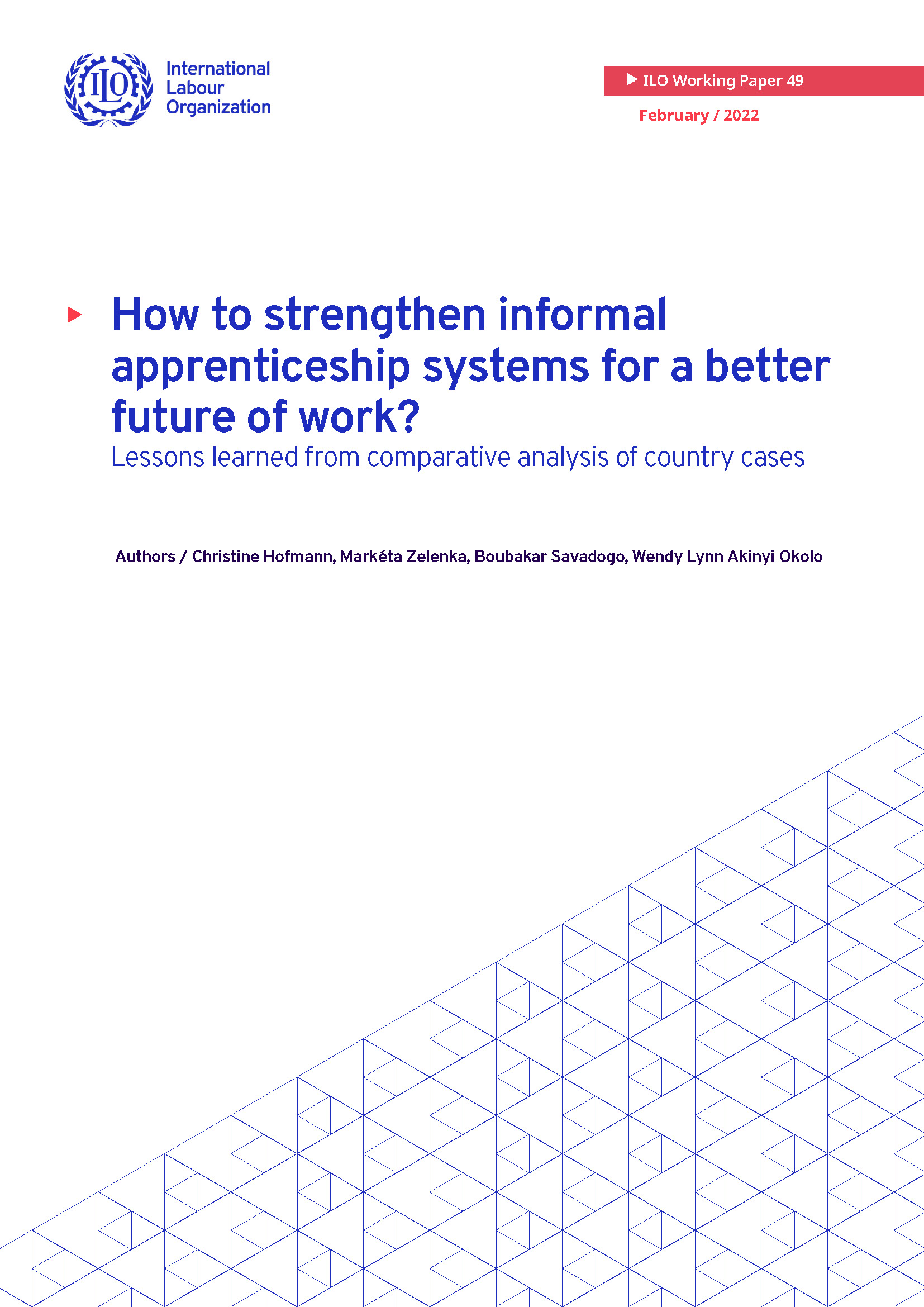Niger
This paper undertakes a meta study on informal apprenticeship in developing countries. It compares the findings of country-level research conducted by the ILO and others in the past 15 years to shed more light on apprenticeship systems in the informal economy. It discusses the features and practices of informal ap-prenticeship systems, their responsiveness to rights at work, and the effectiveness of such systems along criteria such as dropouts, training quality, and transitions to employment. The analysis is complemented by a selected number of country case studies that describe and assess the policies and programmes that were introduced during past years to strengthen and upgrade apprenticeship systems in the informal economy. The findings aim to improve understanding of this complex, heterogenous, yet self-sustained training system in the informal economy for evidence-based discussions and policy dialogue between ILO constituents and beyond.

